Sawmilling and Horse Logging in Western North Carolina
By Wood-Mizer, Canada
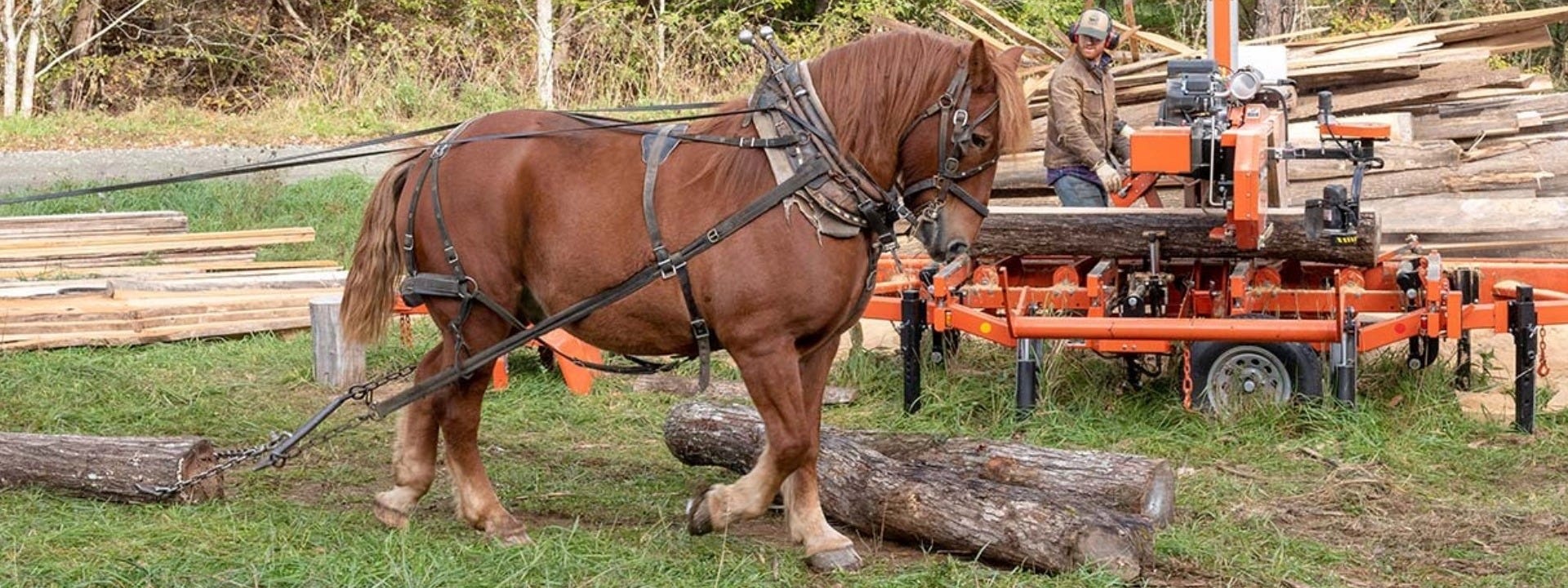
Sometimes the size of a business is less important than the potential impact a company can have on the community it serves. Mountain Works Sustainable Development in Western North Carolina is a case in point. As explained by Ian Snider, one of the company’s owners, Mountain Works’ core approach to business revolves around its function as a demonstration project seeking to bring about change in the way most forestry and agriculture is done in America. “Our vision is to realize an equitable, sustainable, and diverse livelihood for all mountain communities through direct participation in their native ecosystem,” Ian says.
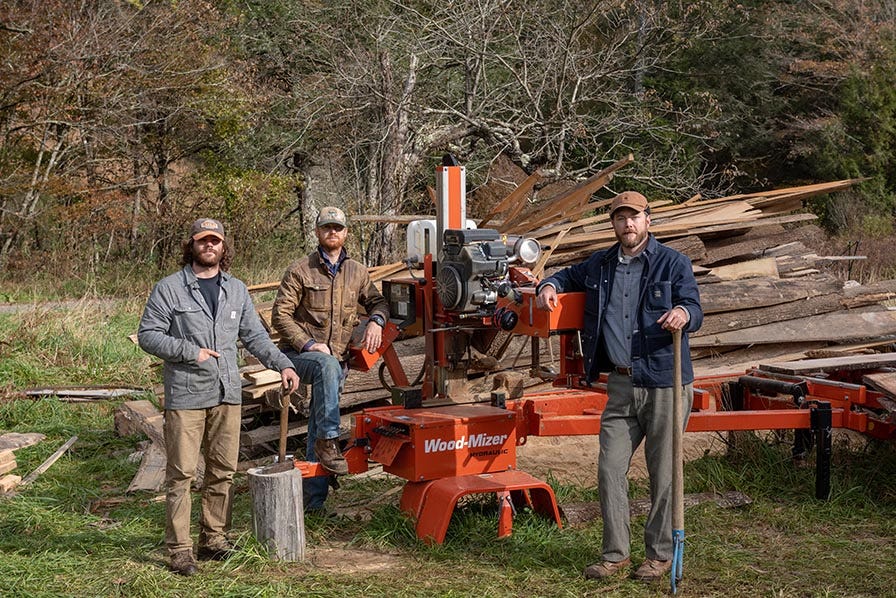

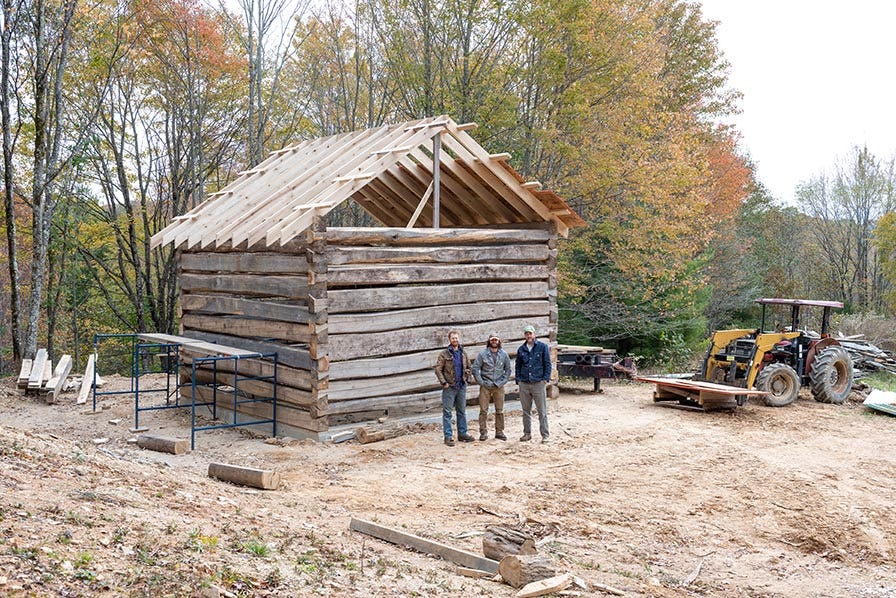

Demonstrating a Grand Vision
It is one thing to have a grand vision, but it is quite another thing to demonstrate the vision can become a reality. “You can talk all day about vision,” Ian puts forward, “But if there is no alternative to the standard ways of doing things, you’re just talking to yourself.” Mountain Works concentrates on proving that alternatives to the standard way of doing things actually do exist and can form the base of an economically viable “life-way” based on sustainability.
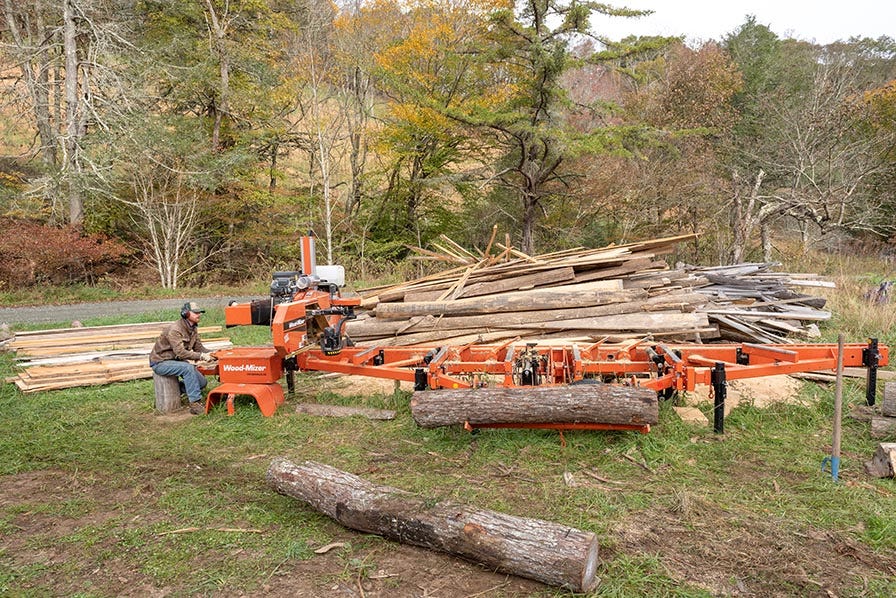

Because sustainability, as a lifestyle choice, touches on nearly every aspect of life, Mountain Works was created by Ian to be more than a single focus company. Mountain Works offers what Ian and his wife and partner Kelly call “A broad range of micro-enterprises operating throughout the community.” To achieve this, they partner with other community businesses to provide forestry consulting, home and small building construction services, lumber and timber framing products, grass-fed lamb and beef, horse logging, and other services related directly or indirectly to the headings of “Farm, Forest and Frame.” “Our goal is to address the needs of the current generation without compromising the needs of future generations,” Ian comments. “That means working for better resource management, reduced energy consumption, and a lighter touch on the land.”
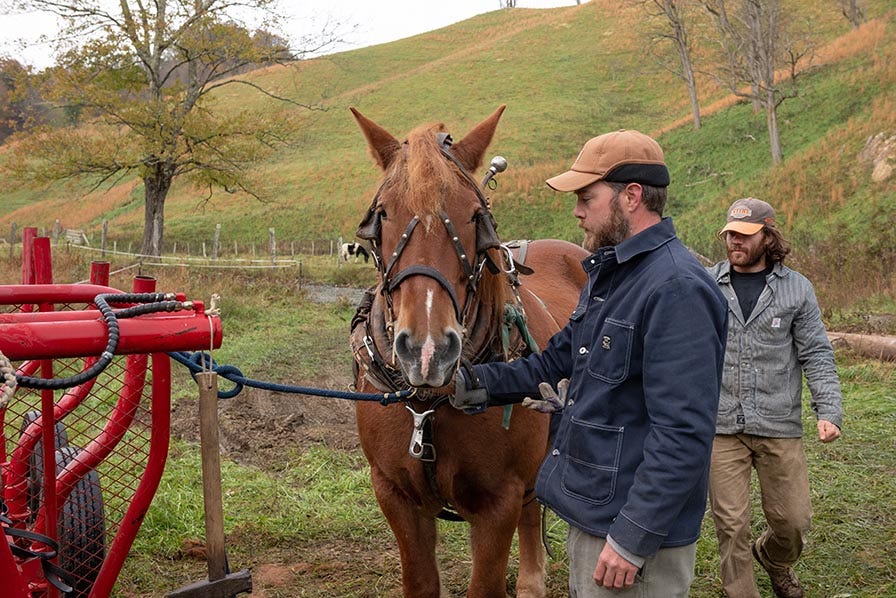

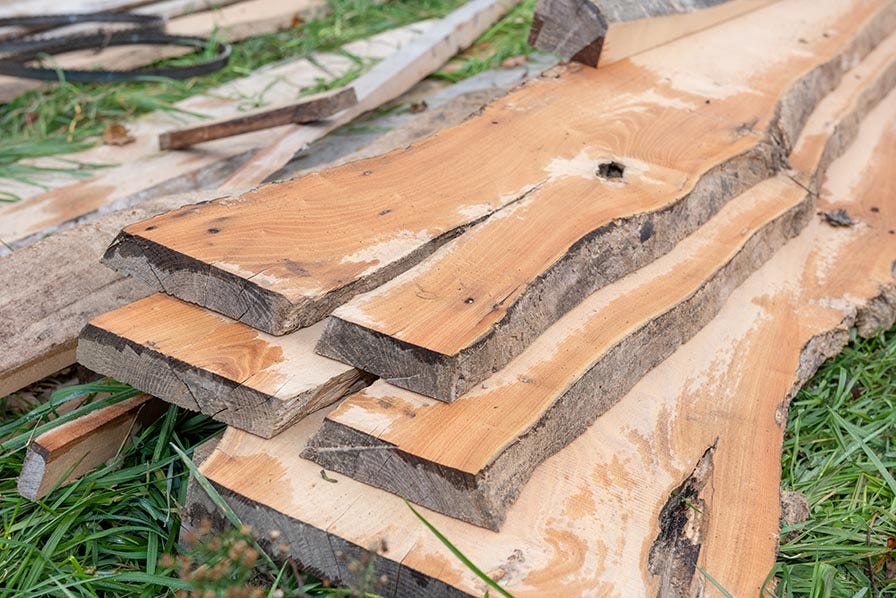

Sustainable Woodland Management with Horsepower and a Portable Sawmill
Horses and thin-kerf portable sawmilling have been two of the most important tools in the Mountain Works arsenal as the company works to build viability while remaining true to its vision for sustainability. “My first exposure to Wood-Mizer came about ten years ago,” Ian says. “My wife and I married in 2008, just in time to see the mills cut the loggers off because of the recession. We were doing our best to get by selling firewood and a few logs to people using them to inoculate mushrooms. One day a lady called and asked if I could do some logging for her. I told her that would be great but the mills weren’t taking logs. She told me she didn’t want to sell the timber, she wanted to use the lumber to build a custom home and wondered if we could do that. We did, and have had Design, Harvest, Saw, and Build projects ever since. Hiring a local Wood-Mizer made us recession-proof.”
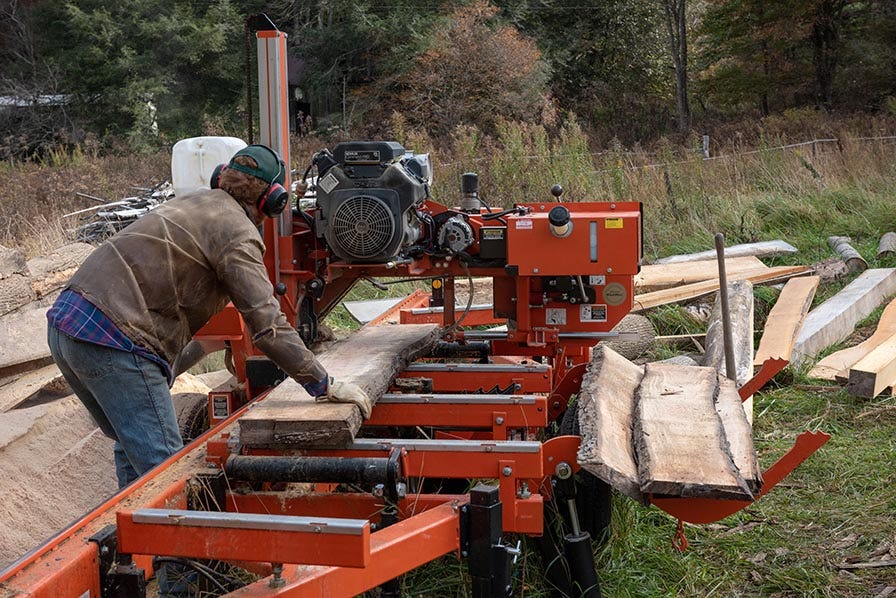

The idea of using horses to achieve Ian’s vision of a sustainable life came about as the result of Ian attending a seminar on horse logging while a graduate student at Appalachian State University. “That demonstration checked a number of boxes for me,” he comments. He saw the use of true “horsepower” as the key to enabling him to pursue his interest in exploring ways to reduce energy consumption, better manage the earth’s resources, and provide for sustainable forestry in the mountain region he calls home.
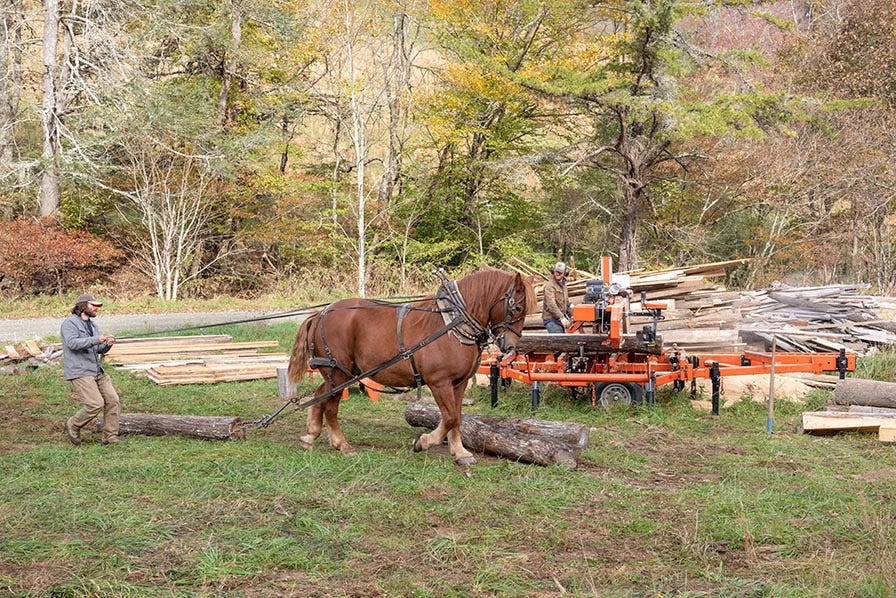

Work horses and the company’s Wood-Mizer LT35 hydraulic portable sawmill utilized in tandem, are essential to the effort. “I’m not anti-machine at all,” Ian says, “It’s just that when it comes to low impact logging, horses have a lot of advantages. We can remove logs with the least amount of damage to remaining trees and can be more strategic with soil impact.” After Ian’s “recession-proof” job he knew buying his own Wood-Mizer sawmill would be vital to Mountain Works’ success. “Our LT35 has been invaluable to us,” Ian comments. “We can saw logs for others, mill out all sorts of products for sale, or for use in our custom building projects. It’s been good debt.”
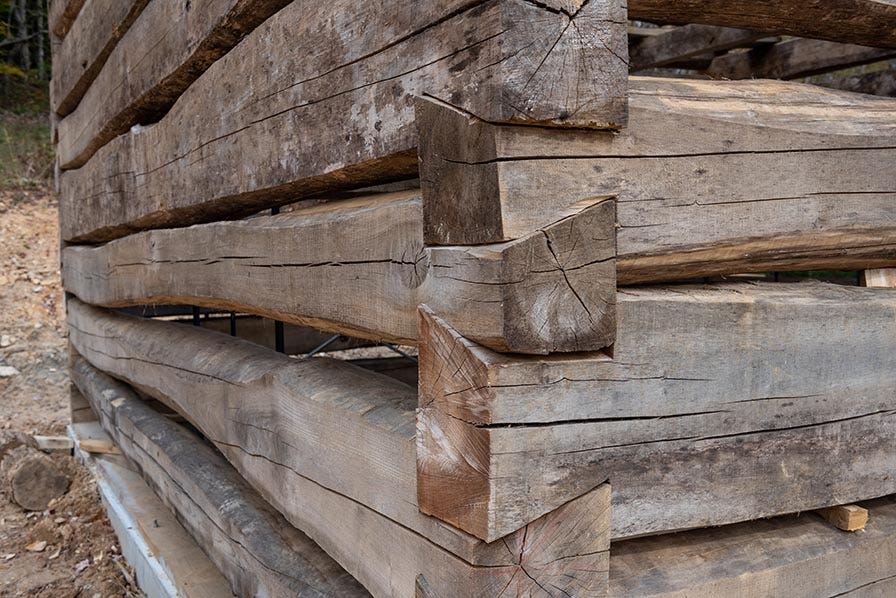

Also vital to Ian is the Wood-Mizer’s ability to contribute to the sustainability of the forest. Because good forestry involves removing insect and weather damaged trees as well as other fiber conventional mills turn away, the ability to turn “waste wood” into high value products is a fundamental need for any effort to improve forest health. “Wood-Mizer is, like my company, a people-oriented company,” Ian says. “When I talk with Joe Whitley at Wood-Mizer Carolina, I’m talking to someone who understands what southern mountain life is all about. That’s very important to me.”
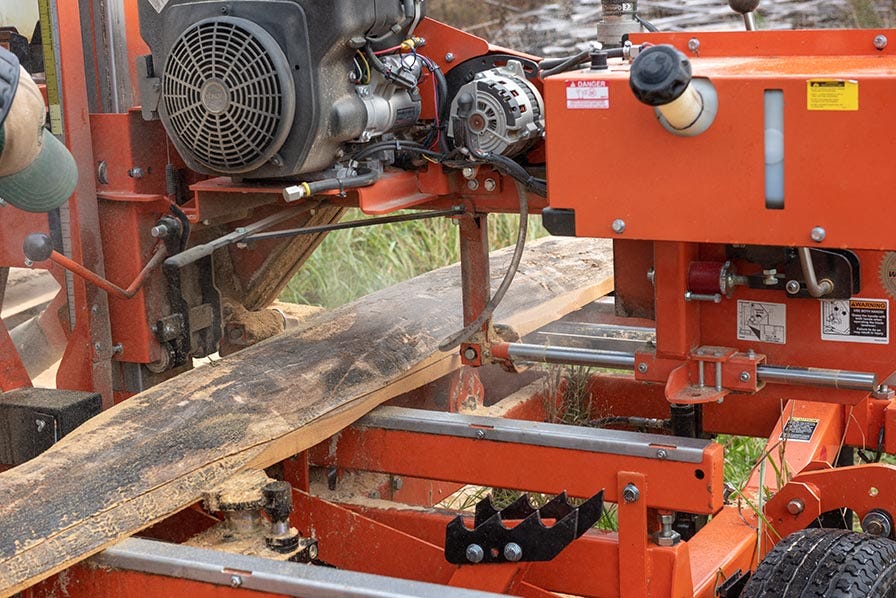

Educating Future Generations
The value of Ian Snider’s approach to sustainable forestry and organic agriculture is demonstrated by the fact that Ian is, today, the Forest Practitioner in Residence at Appalachian State University’s 369 acre farm & forest. With his colleagues, he teaches the principles of Silvicology and Agro-Ecology. He says the horses are an integral part of the team. “So far as I know, Appalachian State University is the only public university in the nation teaching draft animal power as fundamental to sustainable woodland management.” Snider’s business vision influences his educational one as well. “We are developing strategic partnerships regionally and even globally to steward mountain forests into the future,” Ian says. “Without working towards sustainable forest landscapes, our collective future is bleak.”
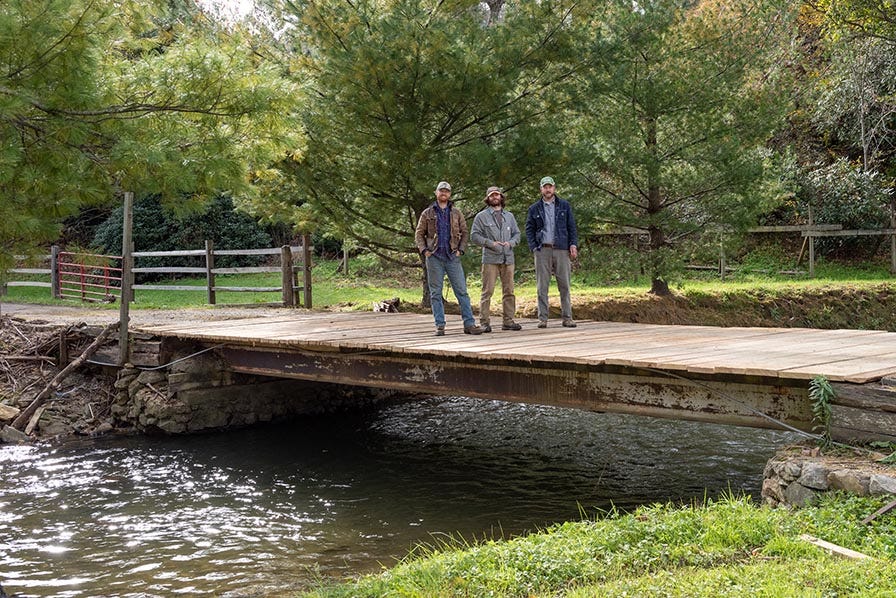

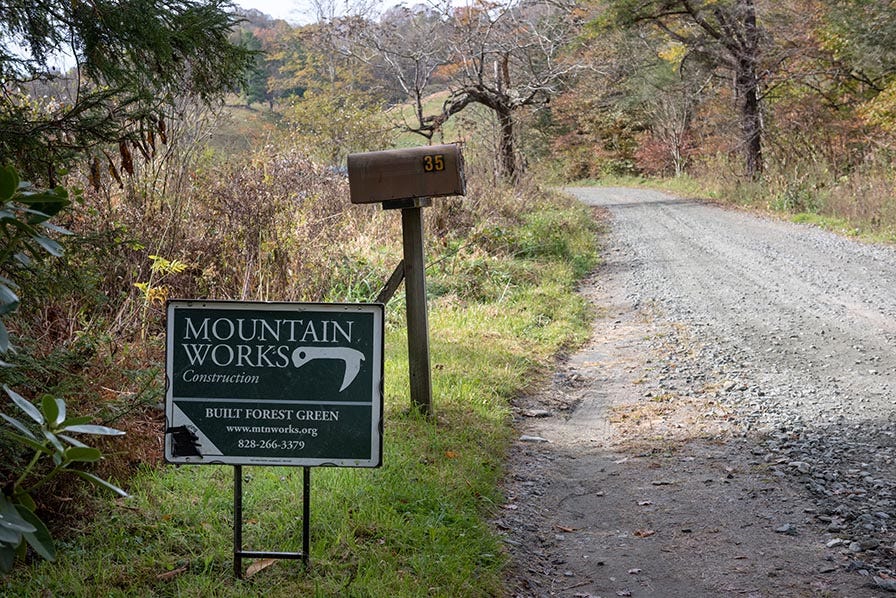

Sometimes the size of a business is less important than the potential impact a company can have on the community it serves. Mountain Works Sustainable Development in Western North Carolina is a case in point. As explained by Ian Snider, one of the company’s owners, Mountain Works’ core approach to business revolves around its function as a demonstration project seeking to bring about change in the way most forestry and agriculture is done in America. “Our vision is to realize an equitable, sustainable, and diverse livelihood for all mountain communities through direct participation in their native ecosystem,” Ian says.


Demonstrating a Grand Vision
It is one thing to have a grand vision, but it is quite another thing to demonstrate the vision can become a reality. “You can talk all day about vision,” Ian puts forward, “But if there is no alternative to the standard ways of doing things, you’re just talking to yourself.” Mountain Works concentrates on proving that alternatives to the standard way of doing things actually do exist and can form the base of an economically viable “life-way” based on sustainability.

Because sustainability, as a lifestyle choice, touches on nearly every aspect of life, Mountain Works was created by Ian to be more than a single focus company. Mountain Works offers what Ian and his wife and partner Kelly call “A broad range of micro-enterprises operating throughout the community.” To achieve this, they partner with other community businesses to provide forestry consulting, home and small building construction services, lumber and timber framing products, grass-fed lamb and beef, horse logging, and other services related directly or indirectly to the headings of “Farm, Forest and Frame.” “Our goal is to address the needs of the current generation without compromising the needs of future generations,” Ian comments. “That means working for better resource management, reduced energy consumption, and a lighter touch on the land.”


Sustainable Woodland Management with Horsepower and a Portable Sawmill
Horses and thin-kerf portable sawmilling have been two of the most important tools in the Mountain Works arsenal as the company works to build viability while remaining true to its vision for sustainability. “My first exposure to Wood-Mizer came about ten years ago,” Ian says. “My wife and I married in 2008, just in time to see the mills cut the loggers off because of the recession. We were doing our best to get by selling firewood and a few logs to people using them to inoculate mushrooms. One day a lady called and asked if I could do some logging for her. I told her that would be great but the mills weren’t taking logs. She told me she didn’t want to sell the timber, she wanted to use the lumber to build a custom home and wondered if we could do that. We did, and have had Design, Harvest, Saw, and Build projects ever since. Hiring a local Wood-Mizer made us recession-proof.”

The idea of using horses to achieve Ian’s vision of a sustainable life came about as the result of Ian attending a seminar on horse logging while a graduate student at Appalachian State University. “That demonstration checked a number of boxes for me,” he comments. He saw the use of true “horsepower” as the key to enabling him to pursue his interest in exploring ways to reduce energy consumption, better manage the earth’s resources, and provide for sustainable forestry in the mountain region he calls home.

Work horses and the company’s Wood-Mizer LT35 hydraulic portable sawmill utilized in tandem, are essential to the effort. “I’m not anti-machine at all,” Ian says, “It’s just that when it comes to low impact logging, horses have a lot of advantages. We can remove logs with the least amount of damage to remaining trees and can be more strategic with soil impact.” After Ian’s “recession-proof” job he knew buying his own Wood-Mizer sawmill would be vital to Mountain Works’ success. “Our LT35 has been invaluable to us,” Ian comments. “We can saw logs for others, mill out all sorts of products for sale, or for use in our custom building projects. It’s been good debt.”

Also vital to Ian is the Wood-Mizer’s ability to contribute to the sustainability of the forest. Because good forestry involves removing insect and weather damaged trees as well as other fiber conventional mills turn away, the ability to turn “waste wood” into high value products is a fundamental need for any effort to improve forest health. “Wood-Mizer is, like my company, a people-oriented company,” Ian says. “When I talk with Joe Whitley at Wood-Mizer Carolina, I’m talking to someone who understands what southern mountain life is all about. That’s very important to me.”

Educating Future Generations
The value of Ian Snider’s approach to sustainable forestry and organic agriculture is demonstrated by the fact that Ian is, today, the Forest Practitioner in Residence at Appalachian State University’s 369 acre farm & forest. With his colleagues, he teaches the principles of Silvicology and Agro-Ecology. He says the horses are an integral part of the team. “So far as I know, Appalachian State University is the only public university in the nation teaching draft animal power as fundamental to sustainable woodland management.” Snider’s business vision influences his educational one as well. “We are developing strategic partnerships regionally and even globally to steward mountain forests into the future,” Ian says. “Without working towards sustainable forest landscapes, our collective future is bleak.”



